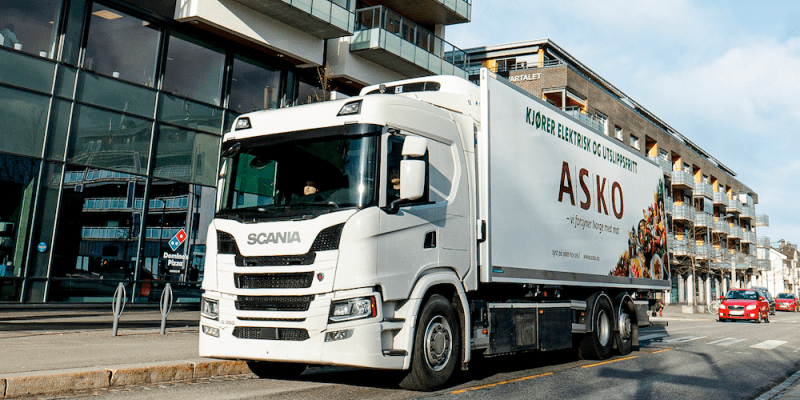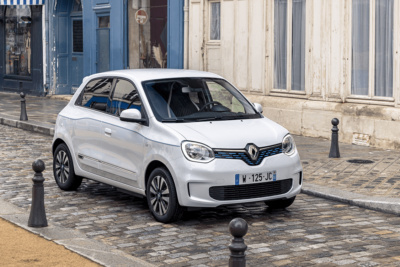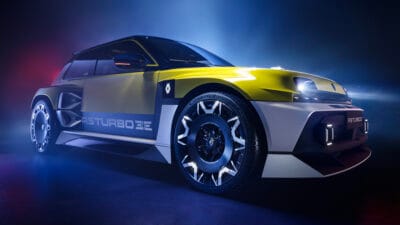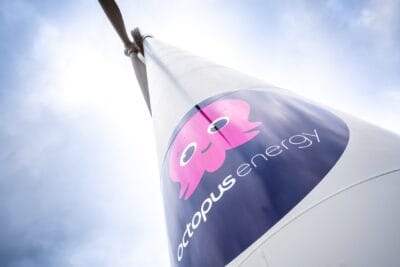ASKO orders up to 75 electric trucks from Scania
Norway’s largest food wholesaler ASKO has committed to order up to 75 battery-electric trucks from Scania over the next three years. For its part, the Swedish commercial vehicle manufacturer intends further to detail the plans for its battery-powered trucks this year.
First of all, ASKO: The food wholesaler – owned by the Norges groups – has already tested the first electric trucks in 2016 and has also been operating four Scania fuel cell trucks in Trondheim since the beginning of this year. However, in the bulk of the fleet, the retailer relies on the battery: The Norwegians had already ordered a total of 55 electric trucks from Scania. And according to their statements, they are the first company in the country to order ten Tesla Semi. Another 20 units will now increase the existing order with Scania.
The background to this is the Group’s intention to achieve emission-free distribution of food by 2026. In this context, ASKO has also recently signed an agreement with ABB to supply the necessary charging infrastructure. The first ABB HVC 150C (150 kW) high-performance chargers are already in operation at ASKO’s distribution centre in Oslo, where they are currently charging two Scania battery-electric trucks. The two vehicles each have a payload of ten tonnes and a range of up to 120 kilometres.
Scania already has electrified commercial vehicles in its portfolio, and the production of battery-powered buses and hybrid trucks and buses is already underway. What is missing are battery-powered serial trucks. Only recently, the Swedes presented new corporate goals that include drastically reducing their carbon emissions and minimising emissions for customers. “The ASKO agreement is a tangible example of how we are working with our customers to make the transition to sustainable transport solutions,” says Scania CEO Henrik Henriksson.
In this context, Volkswagen’s commercial vehicle subsidiary Traton also announced that it intends to invest a total of more than one billion euros in research and development in the field of electromobility with its MAN, Scania and Volkswagen Caminhões e Ônibus (VWCO) brands by 2025. The brands are pursuing different goals: Scania, as an “innovation leader”, is to drive forward non-fossil solutions. At the same time, MAN, as a “broad-based business partner”, wants to focus on a variety of drive systems. At VWCO, the focus is on the best possible price/performance ratio with the markets in Latin America and Africa. However, this does not mean that VWCO is abandoning electric mobility: From 2020, 1,600 electric trucks will be delivered to the Brazilian beer and beverage manufacturer Ambev.





0 Comments